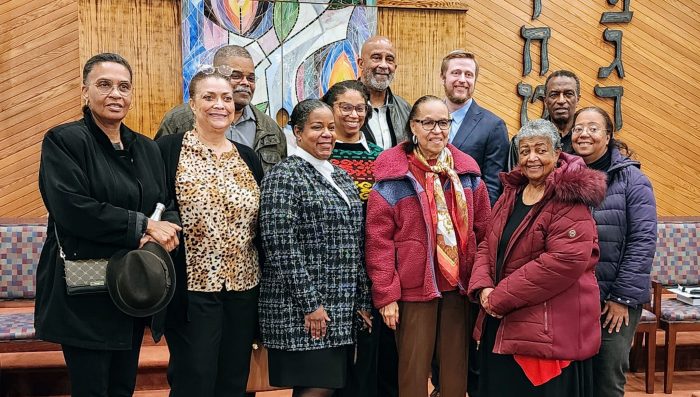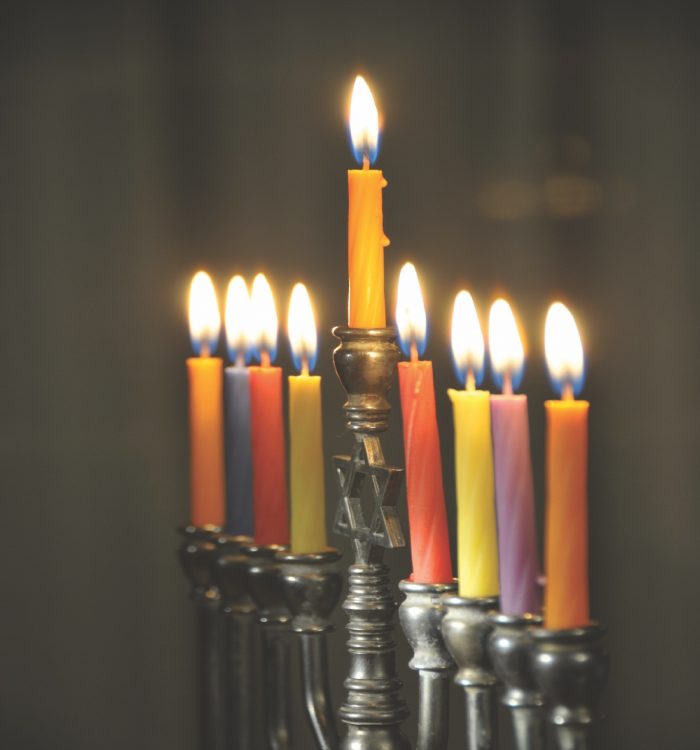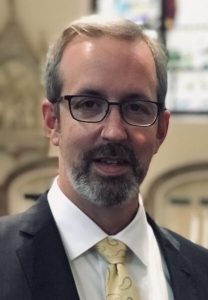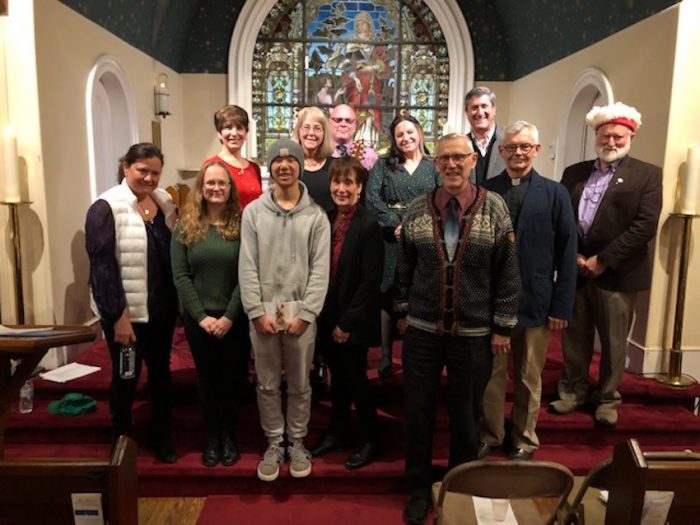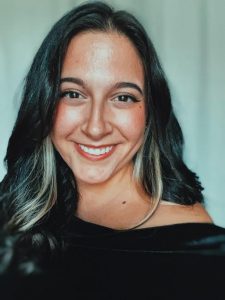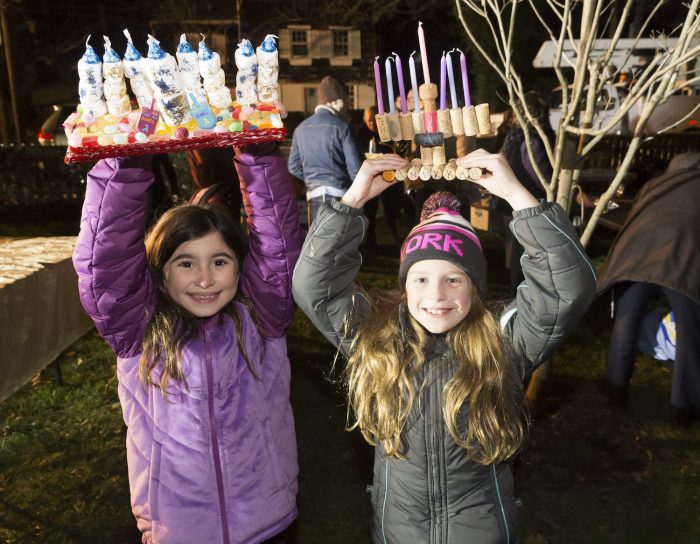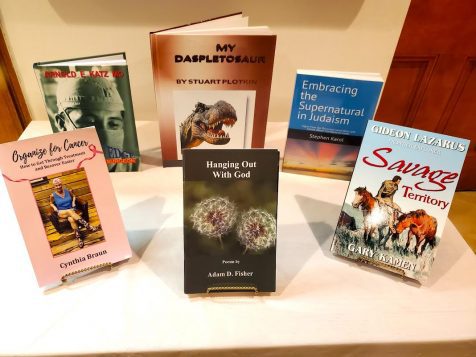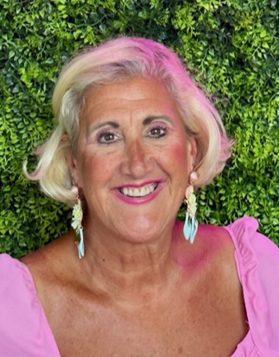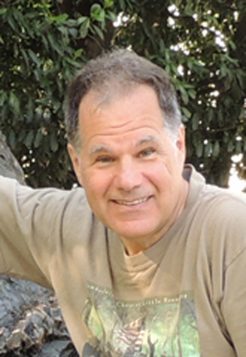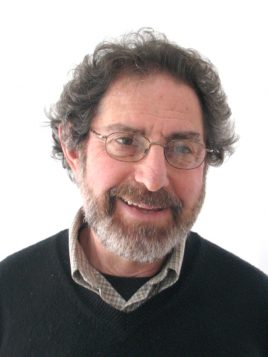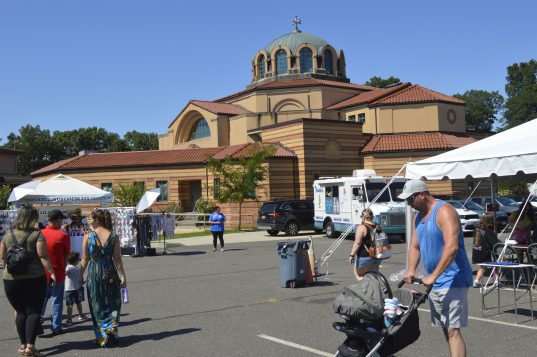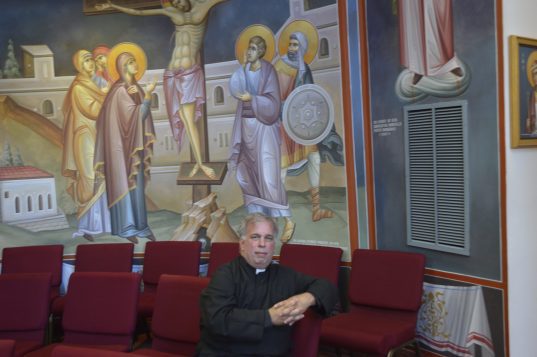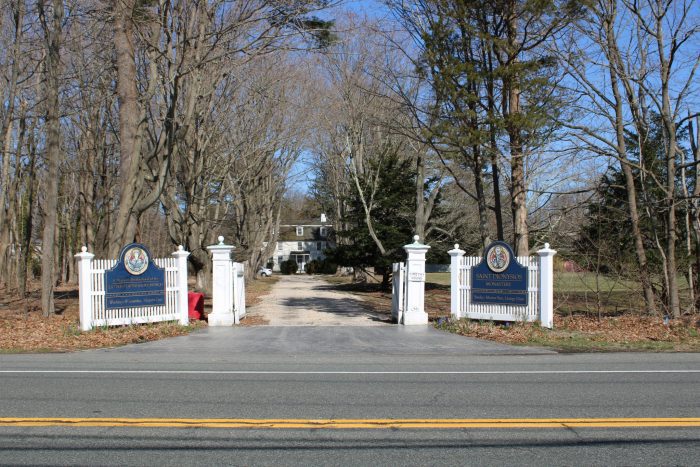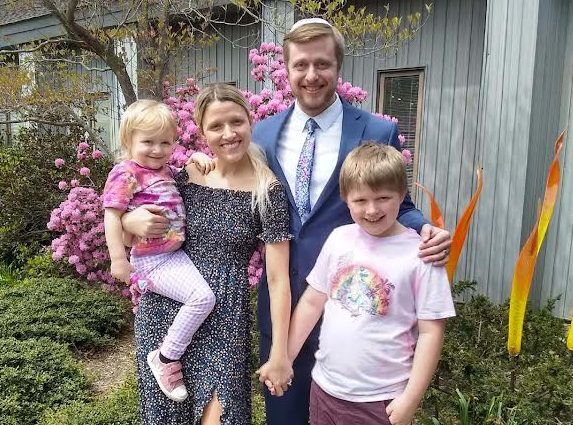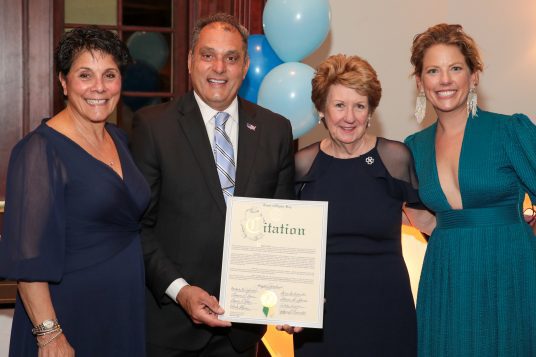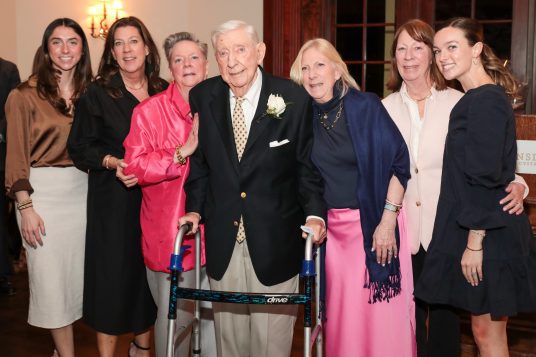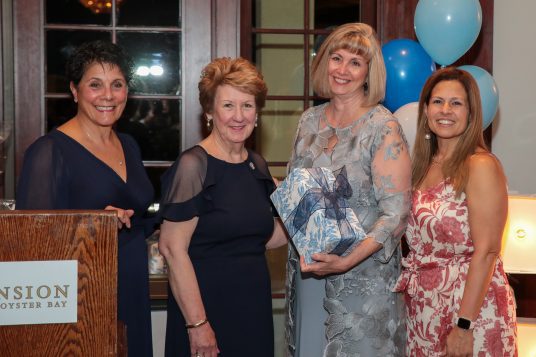By Rita J. Egan
Residents in the Village of Head of the Harbor and the surrounding area were again able to express their opinions Wednesday, Aug. 16, at 7 p.m. regarding a proposed church at 481 North Country Road. This meeting was held after press time.
The Russian Orthodox Monastery of the Glorious Ascension, also known as the Monastery of Saint Dionysios the Areopagite, has owned the historic Timothy House since 2018 and is proposing a plan to construct a house of worship on the property and a 36-space parking lot. A special-use permit is needed to proceed with any construction.
At the June 21 village meeting, Joseph Buzzell, the monastery’s Melville-based attorney, explained that the proposed church building, with a planned maximum occupancy of 282 people, would not be a parish church but a monastery church. He said while people outside of the monastery at times decided to worship with the monks, the monastery is not looking to expand its congregation.
Currently, the monks hold services inside Timothy House. According to village code, land, buildings and major landscaping on either side of 25A, also known as North Country Road, are declared a historic area if they extend to a depth of 500 feet within the village. In addition to the village code, covenants and restrictions were placed on the deed by historian and previous owner Barbara Van Liew in 1973 and 1997.
At previous village meetings, while some residents said they had no concerns, others were worried that the construction of a church and the addition of a parking lot may degrade the historic integrity of the property and the landscape.
In a phone interview, Buzzell said the monastery is not modifying the Timothy House. He said the monks have already paid more than $340,000 in maintenance and repairs on the structure.
Buzzell said the plans for the church had been changed twice to move it from the front of the property toward the back. He said there would be no widening of the driveway and no new lighting. However, he said the entrance posts would have to be moved farther apart.
He said the monks respect the historic integrity of the home and property, but he feels those who are against construction “don’t seem to want to take into consideration what’s been done,” he said.
The lawyer added that the monastery being awarded the special exception permit is important.
“This action ensures the preservation of the house,” he said, adding Van Liew wouldn’t want to see the house put at risk.
Inspections
In a July 20 letter to Mayor Douglas Dahlgard from Robert O’Shea, village building inspector, posted on the village’s website, the letter writer said he met with Father Vasileios Willard, deputy abbot, at the Timothy House for a tour.
He said Willard pointed out some trees he would like to be removed, which O’Shea wrote an arborist will be submitting a report on the condition of the trees. In the letter, the building inspector stated that the grounds were properly maintained according to village and state codes.
Inside the house, new water heaters, waterproofing of basement walls and structural repairs in the basement, first and second floors were among the new work done, according to O’Shea.
He wrote the structure was in “good overall condition and is well maintained.”
The State Historic Preservation Office also reviewed the monastery’s plans and found there would be no adverse effects on the property, but many, including village historian Leighton Coleman III, said they are concerned because a representative from SHPO didn’t visit and survey the property.
Covenants and restrictions
Among those who have criticized the proposed construction to the property has been St. James-based attorney Joseph Bollhofer, chair of the village’s Zoning Board of Appeals. In an email to TBR News Media, he said, in addition to violating the covenants and restrictions placed by Van Liew, it “would violate various provisions of the village code, having to do with a special exception permit.”
At the June 21 meeting, Buzzell said his clients were not aware of the 1973 covenants, something that Bollhofer said would be part of a title search.
When asked by TBR about the comment, Buzzell said that the 1973 covenants did not turn up in the monastery’s title search in 2018 when the property was purchased. The attorney feels that the 1997 document amended and replaced the 1973 document.
But Bollhofer said the 1997 covenants wouldn’t replace or supersede the 1973 document.
“In every case, where one document supersedes or amends another, it must specifically state that,” Bollhofer said, adding, “Both documents state that they ‘run with the land’ and are binding upon all future owners.”
Traffic analysis
In a letter dated Aug. 2, Aaron Machtay, transportation project manager with Hauppauge-based civil engineering firm VHB, presented traffic and parking recommendations to village counsel Philip Butler after reviewing a traffic statement by Atlantic Traffic & Design prepared for the monastery earlier this year, and a site plan from architect Mark Wittenberg that was dated Aug. 30, 2022.
According to the letter, despite prior testimony that the driveway will remain at its 18-foot width, VHB suggested that the driveway be evaluated to see if it can accommodate two-way traffic.
The business also suggested that the previous traffic statement was a conservative estimate and “projections for the future activity should be prepared based on the observed demand and compared against thresholds established for a significant impact.”
Among other suggestions, the letter stated that parking observations need to be reconciled “to present the actual peak parking demand expected for the site,” also there should be an analysis for the three-year crash experience on Route 25A, focusing on the three-year period before the COVID-19 pandemic began.

